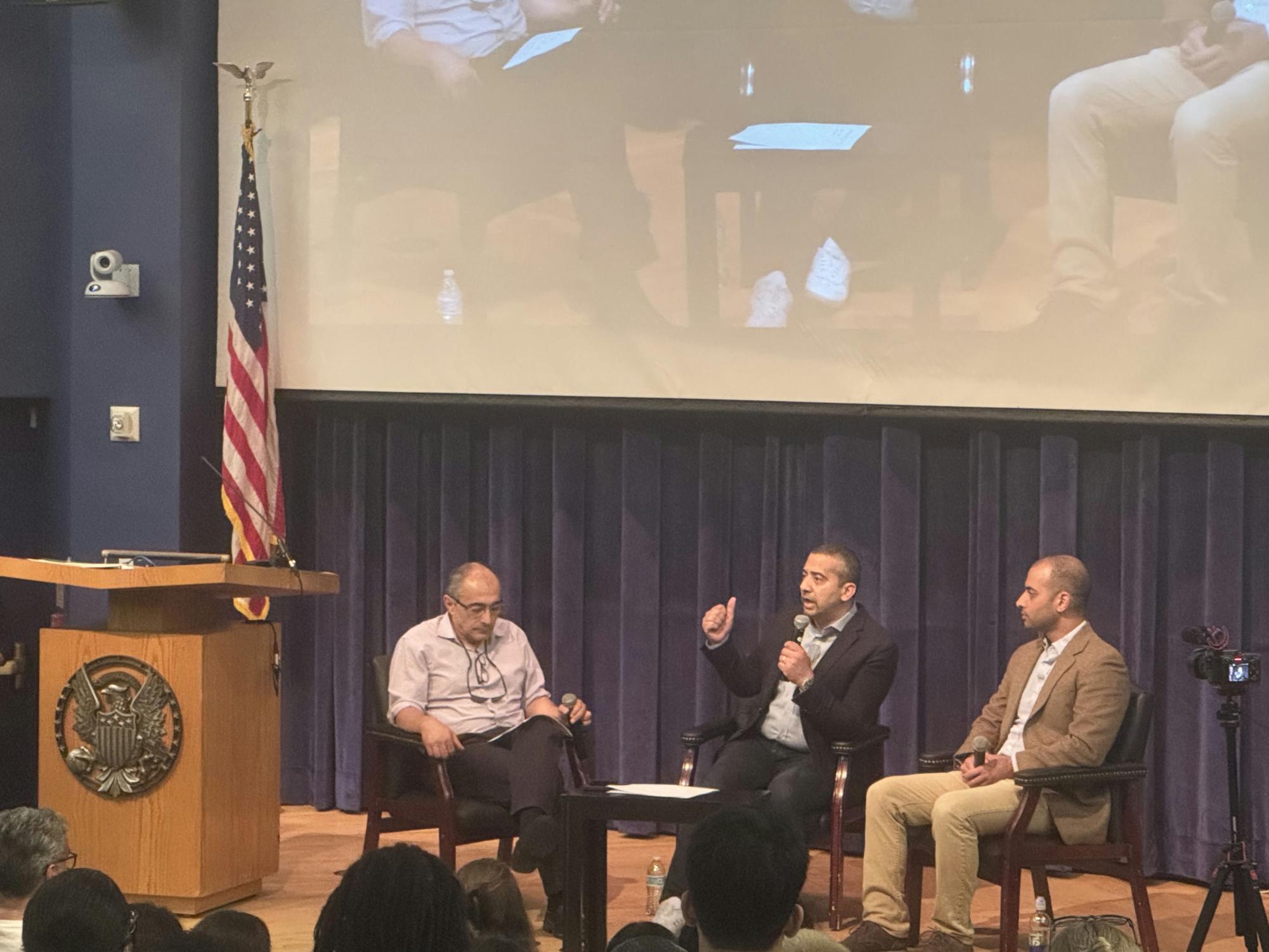A journalist and a humanitarian surgeon warned about the dangers doctors in the Gaza Strip face in a Sept. 9 panel discussion after a Georgetown University academic group hosted a screening of a documentary chronicling the mistreatment of medical staff in Gaza.
The film, “Gaza: Doctors Under Attack,” documents the Israeli Defense Force (IDF)’s bombing of hospitals and health care infrastructure in Gaza since Oct. 7, 2023, as well as the capture and abuse of health care personnel. The BBC originally hired an independent company to produce the film, but declined to air it in June.

Georgetown’s Alwaleed Bin Talal Center for Muslim-Christian Understanding (ACMCU), an academic center that aims to foster interreligious dialogue, also hosted a panel discussion after the film, which was aired globally by the media group Zeteo after the BBC relinquished the rights to it.
Dr. Feroze Sidhwa — a panelist who is a critical care surgeon from California and worked as a humanitarian surgeon in Palestine — said viewers should understand doctors in Gaza face the same hardships of war as other Palestinians.
“The struggle to survive does not spare Gaza’s doctors, the struggle to keep their children sane,” Sidhwa said at the event. “It just doesn’t spare them. And on top of that, the viciousness that they’re just seeing and trying to fight against every single day.”
Zeteo CEO Medhi Hasan, a British-American journalist who was a panelist, said he believes the BBC’s decision not to air the film was a result of outside influence.
“It wasn’t supposed to be a Zeteo film,” Hasan said at the event. “It was supposed to have aired on the BBC, and yet the BBC decided — under pressure from all sorts of institutions, individuals, groups — that they couldn’t run this film because it might look like they’re not impartial on this conflict.”
In a June statement, the BBC said airing the documentary would threaten the broadcasting company’s impartiality and credibility, but added that it transferred the film’s rights to its independent producer, Basement Films, to share the doctors’ stories.
“We have come to the conclusion that broadcasting this material risked creating a perception of partiality that would not meet the high standards that the public rightly expect of the BBC,” the BBC announced.
Hasan said impartiality should not stop journalists from airing information about the ongoing Israel-Hamas war.
“You know that impartiality has nothing to do with why that film didn’t air on the BBC in the U.K. and globally,” Hasan said. “This idea that you need to be impartial in a genocide is an absurd and offensive idea, and I think journalists need to stop with this fake impartiality when it comes to the killing of children, women, doctors, health care workers.”
Sidhwa said health workers in Gaza frequently witness atrocities, particularly those committed against young children, citing an article he wrote for The New York Times in October 2024 that collected firsthand accounts from medical professionals.
“When Israeli soldiers are in the vicinity of the hospital, we all see children shot in the head on a regular basis,” Sidhwa said. “And we’re talking about small kids, not 17-and-a-half-year-old boys. We’re talking about small children.”
Hasan said he thinks the United States needs to publicly condemn Israel, citing Israel’s Sept. 9 strike on Hamas leadership in Qatar — a close U.S. military and economic ally that houses six campuses of various U.S. universities, including Georgetown.
“I think it’s a reminder to countries in the world that you can be the best ally in America, you can buy all the American weaponry you want, donate to all the universities you want, host an American military base in your country and that doesn’t protect you from an Israeli airstrike,” Hasan said. “It’s a very chilling message for the United States to send to its allies around the world.”
Sadhwi said people with privilege, such as himself, must leverage their power to help others.
“People like me are the ones that have to step up and actually do something right now because immigrants are under attack, Muslims in general are under attack, Arabs in general are under attack, Palestinians specifically are extremely under attack,” Sidhwa said. “So the rest of us have to step up and do as much as we can.”